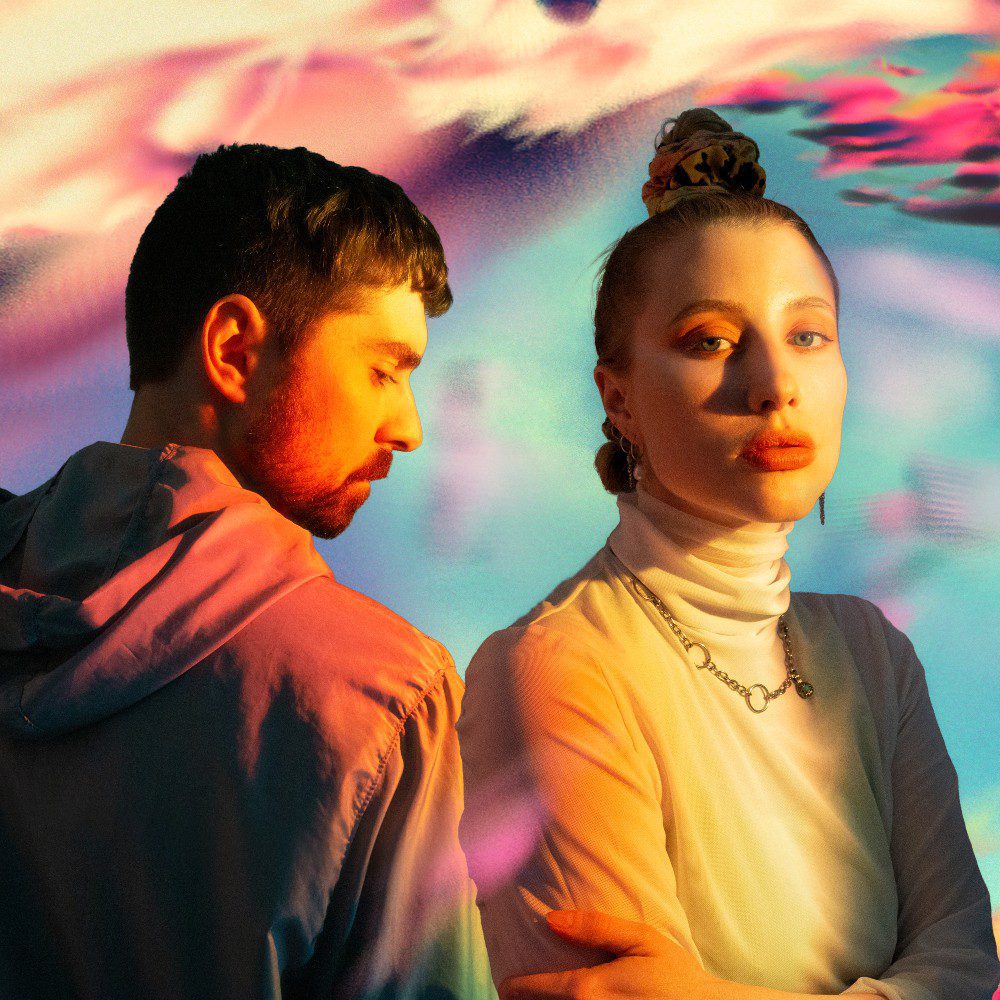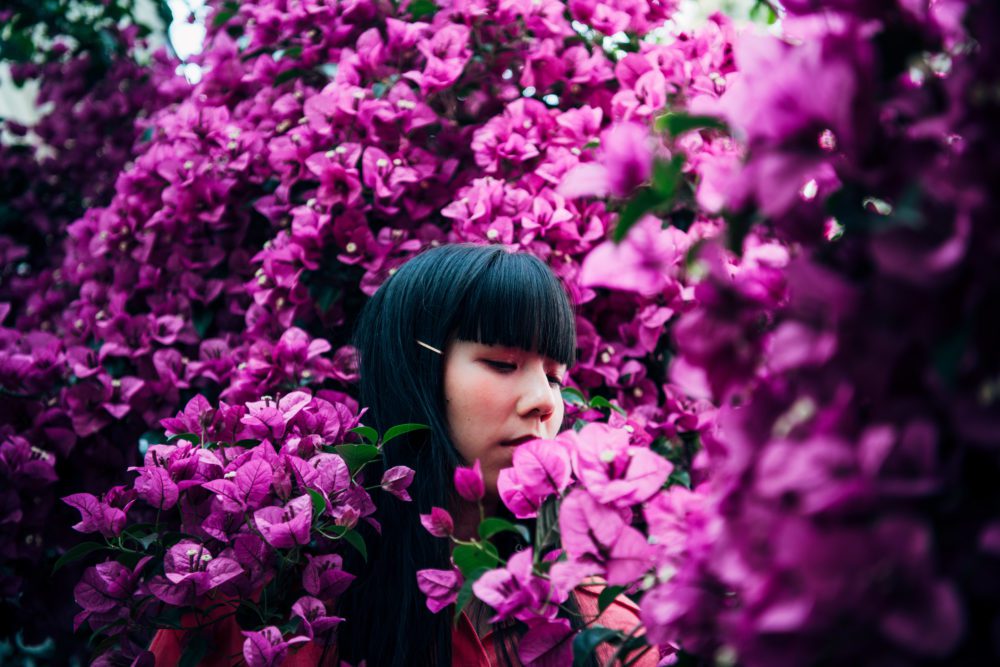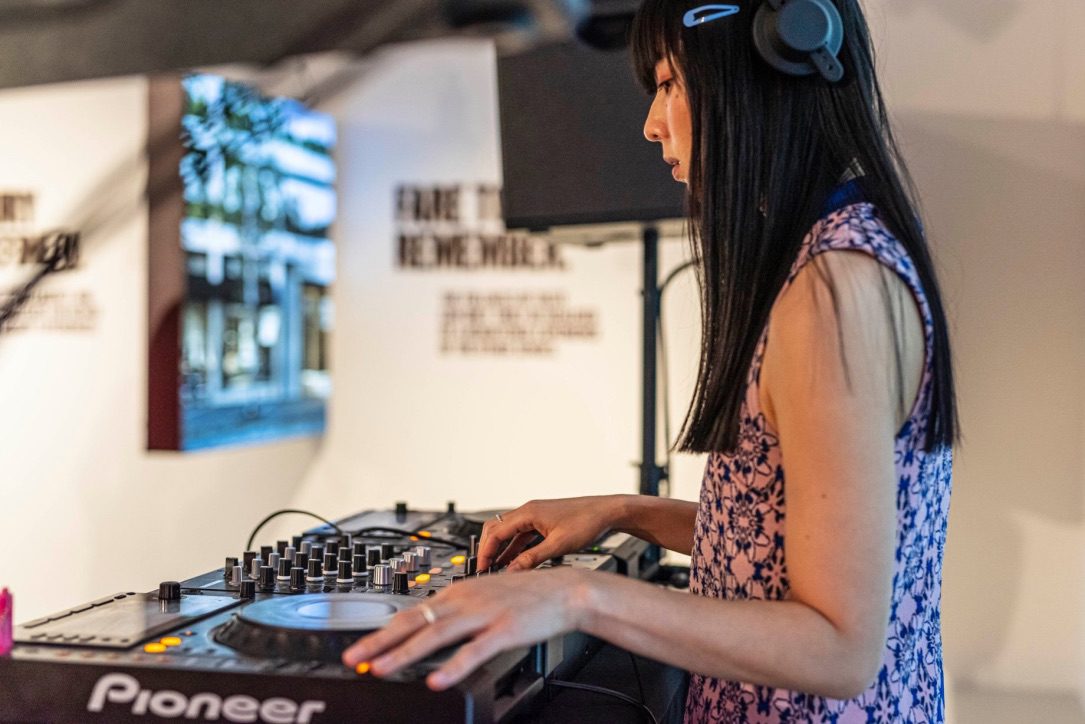

From the first lush sonic textures and waves of synth on Ultra Sound, the debut EP from Kult Kyss out November 12th via TMRW Music, it’s hard not to envision a smoke-filled dancefloor. Vocalist Rromarin (Claire Rayner) and producer Haxx (Jack Arentz) have crafted a throwback to the big beat, anthemic dancefloor bangers of the ’90s; the Melbourne duo’s music is a delicious, shameless montage of building beats, thrilling climaxes, snaky vocoder-edged vocals, boxy beats and dubby, trap sounds.
“So Alive” epitomises their paean to the Melbourne dancefloor of the late ‘90s and noughties. The clever two-step foundation is fleshed out with a soup of synth bleeps and bloops, and a catchy vocal mantra (“I feel so alive”). Rayner traces their sound back to a surprising source of influence.
“Funnily enough, the closest thing to being my first formative dance banger experience was probably Savage Garden’s ‘I Want You.’ That track rocked my world,” she says. “I think there’s still parallels today, with my vocal sound and processing. You can hear things harking all the way back to that song.”
Since his partner is confessing to mid-90s crimes in musical coolness, Arentz confirms his own first album was from a series of trance mix albums that compiled relentless, ear-pounding remixes of well-known club tracks (think Bomfunk MC’s, Kylie Minogue, Craig David and Love Tattoo).
“My first CD was Wild Volume 13, during the Nick Skitz era of crazy mashup CDs. I remember rinsing it pretty hard! That was right around the time Da Rude ‘Feel The Beat’ and ‘Sandstorm’ were peaking. That High-NRG stuff,” he says.
Their tangible, deeper connection with dance music evolved more recently, with immersion into festivals and parties in Melbourne and beyond, explains Rayner. “The most formative years have been the last five to ten years of festivals and parties, and the experience of dancing as a collective. That’s the source of a lot of inspiration for Kult Kyss songs. Lyrically, you can hear that theme echo throughout our tracks – ‘Rituals’ specifically is literally that, the ritual of people coming together to dance. ‘God Is A Bassline,’ as well. A lot of Kult Kyss tracks are basically me worshipping at the altar of dance music.”
“Rituals” is a throbbing, bass-heavy groove number, in which Rayner’s croon slinks around the beats like an espresso martini on ice. There’s no sign of high-NRG, trance or Craig David, but the sexy smooth pop feel is – wonderfully – redolent of Savage Garden, though I wouldn’t have picked it if not for Rayner’s directive. There’s threads of more than one of Australia’s most commercially successful pop duos, though. Depeche Mode’s “Never Let Me Down Again,” with its boxy synths, slinky vocals and simple keyboard progressions paved the way, as did Roisin Murphy’s early band, Moloko. “The Time Is Now,” with its clever layering of vocals, hook-filled choruses and unexpected use of flamenco guitar and hand-claps heralded an adventurous spirit of dance music when it was released in 1999, in which synths and live instruments opened up a welcome blending of genres and musical experiments.
Arentz and Rayner are emblematic of this cross-genre experiment working wonderfully both creatively and in life, generally. Arentz’s background was in live bands, while Rayner’s school and university years were dedicated to training in classical music.
“I was very heavily involved in classical music throughout high school then I went on to do Bachelor of Classical Music at the Melbourne University Conservatorium of Music, but I’d always wanted to be in bands and make contemporary music – pop, electronic, dance. When I met Jack, he helped me cross over to the dark side.”
It was an easy move for Rayner, but she admits, “everyone was very disappointed that I wasn’t continuing with classical music.”
Her instrument throughout university was the bassoon.
“Since I wrapped the degree, I haven’t picked up a bassoon because I so wholeheartedly wanted to move into a different realm of music,” she says. “I feel so grateful for that foundation… The only claim to fame for the bassoon is Howard Moon from Mighty Boosh!”
Arentz recalls, “I moved to Melbourne in 2010 to be in a rock band, which I won’t name for the shame, but that’s when I met Claire – around that time – and we started making music together. Originally, before Kult Kyss, [our music] was a hybrid of guitar, piano and electronic music. But it became progressively more and more electronic. Then we started running a rooftop studio together; we were having more rave events on the rooftop and that coincided with the birth of Kult Kyss and our love for ravier, electronic music.”
That studio is Joyluck, based in the inner northern suburb of Thornbury in Melbourne. Throughout the pandemic, the duo spent their time renovating it into a multi-arts venue for production and performance. It is the culmination of years of organising events, producing for other artists, performing at festivals and DJing.
It was their DJ sets that first attracted the attention of one of Australia’s most prestigious dance music duos. Kult Kyss covered The Presets’ “This Boy’s In Love” at the end of 2016, attracting the attention of the Australian band, who inveigled them onto their national HI VIZ tour of 2018. “Shout out to The Presets, who were a huge influence, and particularly for me,” says Rayner. “Obviously, that’s why working with them and touring with them was a dream come true, because we’ve been listening to them for a very long time.”
That influence simmers away in “God Is A Bassline,” which is cinematic, throbbing along like a futuristic Batmobile heading into the night with heroics in mind. It’s the sort of pulsating beat that convinces a fluffy-slipper and tracksuit-panted Melbournian that they can swipe some glitter over their eyelids and bravely get out of their apartment. Perhaps to the dancefloor, as restrictions loosen.
“The place where I feel most connected to strangers is on a dancefloor,” says Arentz. “That’s what really drew us into dance music the most, having these friendship groups running their own raves and events around a fire or on a rooftop. You get involved in music because you want to be connected. At its best, it’s like a fantasy world where you make friends on the dancefloor… all these people you’ve never met before have everything that you need.” Adds Rayner: “I feel like we’ve been off dancefloors for so long, but the community in Melbourne has been incredibly loving, kind, welcoming and safe.”
Follow Kult Kyss on Instagram for ongoing updates.



